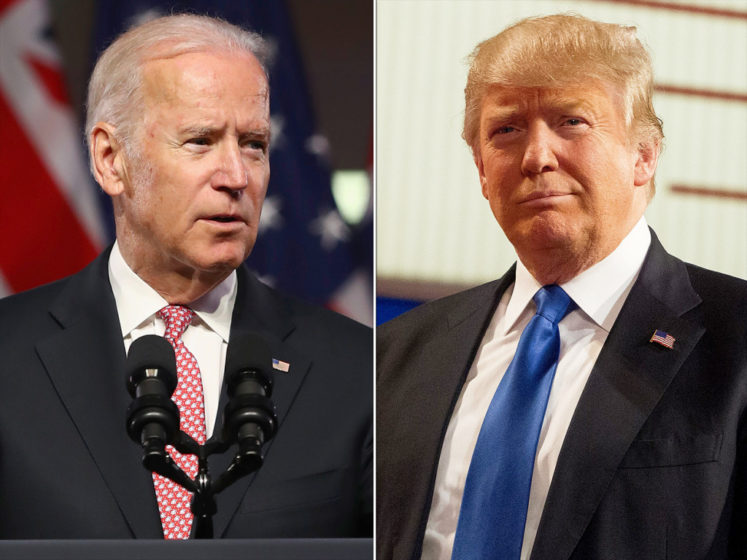The New Congress Will Influence Post-Election Health Care Policy

The main difference in health care policies between President Donald Trump and his Democratic opponent Joe Biden centers on Obamacare. But no matter who is elected president in November, the makeup of the new Congress will determine whether his health care agenda is implemented.
Those were among the takeaways from a Manatt Health webinar, “How Will The 2020 Election Results Impact Health Care?”
The two main health care issues in the Nov. 3 election are the future of the Affordable Care Act and the federal response to COVID-19, said Joel Ario, Manatt managing director.
Biden, who served as vice president under President Barack Obama, had a front-row seat when the Affordable Care Act took effect in 2014. Biden, a strong supporter of the ACA, wants to increase the tax credits that enable many consumers to buy coverage. He also favors expanding Medicaid, creating a federal public option to compete with private health insurance, and lowering the Medicare eligibility age.
Trump wants to appeal the ACA. He also wants to encourage the use of short-term limited-duration health plans and association health plans.
As for COVID-19, Ario said, Trump is emphasizing Operation Warp Speed, which aims to make a vaccine available quickly, and he supports economic reopening whenever possible. Biden also supports vaccine development, but is focused more on how to attain public confidence in that vaccine. As for reopening the country, Biden wants to secure the necessary stimulus funding to open schools and businesses.
Other highlights of the presidential candidates’ health policy platforms include:
With all 435 members of the U.S. House of Representatives and one-third of the U.S. Senate up for election this year, the makeup of the new Congress will be crucial in whether the president’s health care agenda becomes reality. Allison Orris, Manatt counsel, presented a breakdown of possible legislative scenarios under a Trump or a Biden presidency.
Congress either could end up with Democrats controlling both chambers, with Republicans controlling both chambers, with a continuation of the current Democratic-controlled House and GOP-controlled Senate, or a flip with Democrats taking the Senate and Republicans taking the House.
Orris outlined several possible health care priorities that would take place under a number of possible scenarios.
On Nov. 10, the Supreme Court will hear arguments in the case of California v. Texas, a lawsuit challenging the constitutionality of the ACA. Orris said a post-election Congress can control the ACA’s fate. Congress could pass legislation before the court reaches a decision, making the court case moot. These legislative options include:
- Change the individual mandate penalty from $0 to an amount that would generate revenue for the government.
- Repeal Section 5000A of the Affordable Care Act, the individual mandate.
- Pass legislation severing the individual mandate from the rest of the ACA.
- Pass health reform legislation that replaces the ACA.
Susan Rupe is managing editor for InsuranceNewsNet. She formerly served as communications director for an insurance agents' association and was an award-winning newspaper reporter and editor. Contact her at [email protected]. Follow her on Twitter @INNsusan.
© Entire contents copyright 2020 by InsuranceNewsNet.com Inc. All rights reserved. No part of this article may be reprinted without the expressed written consent from InsuranceNewsNet.com.
Susan Rupe is managing editor for InsuranceNewsNet. She formerly served as communications director for an insurance agents' association and was an award-winning newspaper reporter and editor. Contact her at [email protected].









Selective Insurance Reports Strong 3Q Net Income
Who Is Better For The Economy, Trump Or Biden?
Advisor News
- Americans have ambitious financial resolutions for 2026
- FSI announces 2026 board of directors and executive committee members
- Tax implications under the One Big Beautiful Bill Act
- FPA launches FPAi Authority to support members with AI education and tools
- How financial planners can use modeling scenarios to boost client confidence
More Advisor NewsAnnuity News
- Retirees drive demand for pension-like income amid $4T savings gap
- Reframing lifetime income as an essential part of retirement planning
- Integrity adds further scale with blockbuster acquisition of AIMCOR
- MetLife Declares First Quarter 2026 Common Stock Dividend
- Using annuities as a legacy tool: The ROP feature
More Annuity NewsHealth/Employee Benefits News
- Deerhold and Windsor Strategy Partners Launch Solution that Enhances Network Analysis for Stop-Loss Carriers and MGUs
- Alameda County hospital system lays off hundreds of employees to counter federal cuts
- Detailing Medicare prescription drug coverage
- NFIB TESTIFIES FOR LOWERING HEALTH INSURANCE COSTS
- VITALE BILL TO STRENGTHEN NEW JERSEY IMMUNIZATION POLICY AND COVERAGE HEADS TO GOVERNOR'S DESK
More Health/Employee Benefits NewsLife Insurance News